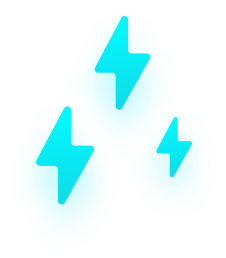How To Reduce Dandruff Naturally
How To Reduce Dandruff Naturally
Introduction:
Dandruff is a common scalp condition that affects millions of people worldwide. Itchy, flaky scalp and white or yellowish flakes on your hair and shoulders can be embarrassing and uncomfortable. While there are lots of anti-dandruff products available, natural remedies can be effective in reducing dandruff without exposing your scalp to harsh chemicals. In this blog post, we will explore various natural methods to combat dandruff and achieve a healthy scalp.
1. Understanding Dandruff:
1.1 What is Dandruff?
Dandruff is a chronic scalp condition characterized by the excessive shedding of dead skin cells. It is often accompanied by scalp itching, redness, and irritation. Dandruff can be caused by various factors, including dry skin, fungal overgrowth, seborrheic dermatitis, or a reaction to hair care products.
1.2 Common Triggers for Dandruff
Dry scalp: Lack of moisture on the scalp can lead to flaking and dandruff.
Malassezia fungus: An overgrowth of this fungus on the scalp can cause dandruff.
Seborrheic dermatitis: A common skin condition that causes redness, greasy scales, and dandruff.
Sensitivity to hair care products: Some shampoos, conditioners, or styling products can trigger dandruff in sensitive individuals.
2. Natural Remedies for Dandruff
2.1 Tea Tree Oil: Tea tree oil has natural antifungal properties that can help combat the fungal overgrowth associated with dandruff. Dilute a few drops of tea tree oil in a carrier oil (such as coconut oil) and gently massage it into your scalp. Leave it on for 30 minutes before washing your hair. Repeat this process a few times a week for best results.
2.2 Apple Cider Vinegar: Apple cider vinegar helps restore the pH balance of the scalp and reduces dandruff-causing fungi. Mix equal parts of apple cider vinegar and water and apply the mixture to your scalp after shampooing. Leave it on for a few minutes before rinsing thoroughly. Start with this remedy once a week and gradually increase the frequency if needed.
2.3 Aloe Vera: Aloe vera has soothing and moisturizing properties that can alleviate scalp dryness and reduce dandruff. Extract fresh aloe vera gel from the leaf and apply it directly to your scalp. Leave it on for 30 minutes before rinsing off. Use this remedy a few times a week to promote a healthier scalp.
2.4 Coconut Oil: Coconut oil is known for its moisturizing properties, which can help combat dryness and reduce dandruff. Warm up some coconut oil and massage it into your scalp. Leave it on overnight or for a few hours before washing your hair. Regular use of coconut oil can help nourish the scalp and minimize dandruff.
2.5 Lemon Juice: Lemon juice contains citric acid, which helps regulate the pH balance of the scalp and reduce dandruff. Squeeze fresh lemon juice and apply it directly to your scalp. Leave it on for 5-10 minutes before rinsing thoroughly. Avoid using lemon juice if you have any scalp cuts or open wounds.
2.6 Baking Soda: Baking soda acts as an exfoliant, removing dead skin cells and reducing dandruff. Wet your scalp and rub a handful of baking soda into your scalp. Leave it on for a couple of minutes before rinsing thoroughly. Start with this remedy once a week and adjust the frequency based on your scalp's response.
3. Healthy Scalp Habits:
3.1 Maintain a Balanced Diet: A nutrient-rich diet plays a crucial role in maintaining a healthy scalp. Include foods high in Omega-3 fatty acids, zinc, and B vitamins to promote scalp health. Foods like salmon, walnuts, spinach, and eggs can contribute to a healthier scalp and reduce dandruff.
3.2 Practice Regular Hair Washing: Regularly washing your hair helps keep your scalp clean and prevents the buildup of dead skin cells and oils that can contribute to dandruff. Use a gentle, anti-dandruff shampoo and rinse thoroughly to ensure no residue is left behind.
3.3 Avoid Heat Styling and Over-brushing: Excessive heat styling and aggressive brushing can irritate the scalp and worsen dandruff. Limit the use of heat styling tools and opt for gentle brushing techniques to avoid scalp inflammation.
3.4 Manage Stress Levels: Stress can exacerbate dandruff symptoms. Practice stress management techniques such as meditation, yoga, or engaging in hobbies to reduce stress levels and promote a healthier scalp.
Conclusion:
Dealing with dandruff can be frustrating, but natural remedies and healthy scalp habits can help you reduce its occurrence and improve the overall health of your scalp. Experiment with different natural remedies and maintain a consistent hair care routine to find the best approach for your specific needs. With time, patience, and a holistic approach, you can achieve a dandruff-free scalp and enjoy healthy, beautiful hair.
31 May 2023







